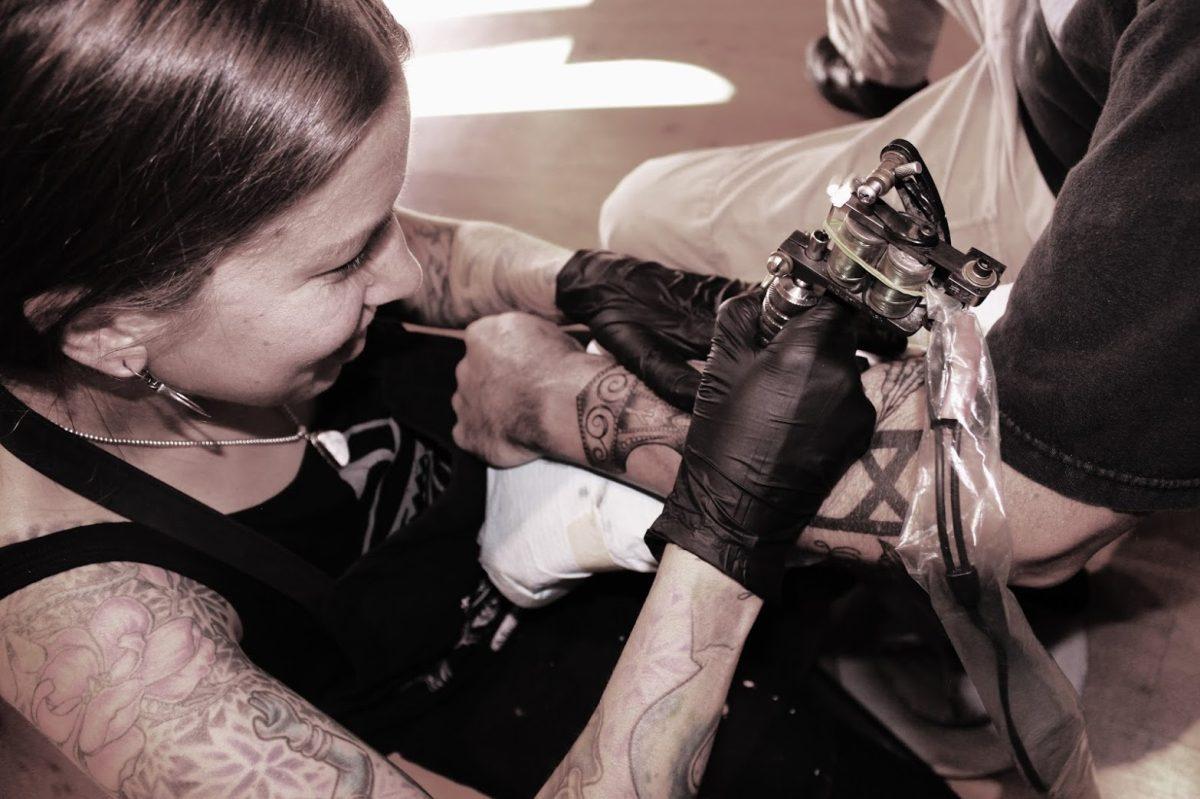A student, a teacher and a tattoo artist gathered at “Sonoma Ink,” taking part in a discussion about the tattoo culture last Tuesday, April 23, in the Beaujolais Meeting Room.
Guests packed their way in, eager to hear three different perspectives of how tattoos have been reflected in a person’s life and to get temporary henna tattoos done.
Also known as Mehndi, henna tattoos originated from a south Asian tradition, taking the powdered leaves of a Henna plant to use as paste.
The three person panel consisted of Alvin Nguyen, a ResLife coordinator and instructor at Sonoma State University, Jennifer Untalan, a tattoo artist at ValkyrieTattoo, as well as Carina Buzo, a senior at SSU.
All tattoo enthusiasts all have specific influences, for students like Buzo tattoos are a great representation of the culture she comes from.
“Being from a traditionally hispanic and pretty religious family, I knew that my family and cultural identity is something I would always be connected to,” said Buzo. “It would result in a tattoo that I would not regret.”
Buzo helped put on the event and works with Nguyen to put together other monthly programs based on the Upperclassmen Engagement, or simply U-Engage, programming model.
With CALI, Career Academics Leadership Identity, the two of them put together a monthly “U-Week,” focusing on one of the four topics, this one being identity.
“We created the idea earlier this school year while sharing stories about our tattoos,” said Buzo. “So I organized the panel, created the questions and even designed the graphic for the program myself.”
One of the main issues discussed was the media’s outlook nowadays on people with tattoos, especially how tattooed women are viewed in our society.
Untalan was able to give a first-hand perspective as an artist with many visible tattoos, pointing out that society seems to be more accepting towards heavily tattooed women now.
She admitted to being discriminated against from other people in the past due to her tattoos and even though the mainstream sees them as more acceptable these days, that there are still a lot of other states, cities and certain religious beliefs that are not as open to a change of viewpoints.
A majority of people that come into tattoo shops have a deep need to get their tattoo, which helps them fulfill an act of personal expression.
However, there is always that percentage of people that choose to get tattoos because of a trend, that have a tendency to regret it later on in their life because of the choice to get it as a fashion statement.
“I have been defending tattooed people for many years to the mainstream; trying to prove a point that not all tattooed people are degenerates, etc.,” said Untalan. “The stereotype of a tattooed person being an outlaw or rebel days are pretty much over.”
What’s encouraging nowadays is that there are many amazing tattoo artists who are pushing the envelope and creating some real fine art on bodies, helping to change the view of tattooed people.
With the rise in popularity of the internet and television programming, tattoo art has been highlighted in a much more positive way.
One of the last things discussed was the actual decision of getting a tattoo and how to consider this process.
The main concern should be to put a lot of thought into getting something that will still remain relevant in the future, usually the big one that people tend to get rid of are names.
Make sure to get a tattoo that is a positive reminder, despite the possibly of outgrowing it at some point in your life.
Things that greatly influenced us as a person when we were younger will remain there forever and tattoos are a permanent way to remember them.



































